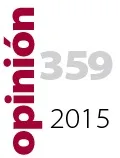A Nobel for Tunisia

Francis Ghilès, Associate Senior Researcher, CIDOB
This article was published in POLITICO
The decision of the Nobel Peace Prize Committee to hand the award to the Tunisian National Dialogue Quartet for “its decisive contribution to the building of a pluralistic democracy in the country in the wake of the Jasmine Revolution of 2011” may have come as a surprise to those who were expecting Pope Francis or Chancellor Angela Merkel to be chosen.
Last year’s prize went to two children’s rights campaigners; this year it went to four people who united their efforts and helped save their country from tipping into civil war. These four Tunisians and the organizations they represent are more than worthy of this prestigious prize — their country, in a broader sense, deserves it, too. The Quartet, which was formed in the summer of 2013, includes four organizations: the Tunisian Human Rights League, one of the oldest and most active of its kind in Africa and the Middle East, an organization which was constantly harassed under the former dictator Zine el Abidine Ben Ali; the second oldest trade union movement on the continent after South Africa, the Tunisian General Labour Union (UGTT), whose founder, Ferhat Hached, played an important role in the country’s battle for independence and was assassinated by extreme right-wing French settlers in 1952; the Tunisian Order of Lawyers, many of whose members have, since independence, strived to avoid the tight embrace of an authoritarian state; and, last but not least, the Tunisian Confederation of Industry, Trade and Handicrafts (UTICA), led by Wided Bouchamaoui, the daughter of one of country’s most distinguished family of industrialists. The presence of the latter among the Quartet is symbolic of the status of women in a country which, more than any other in the Arab world, has granted women equal rights with men.
The Quartet came together when tension was running very high in 2013 following the assassination of two prominent left-wing deputies, Chokri Belaid and Mohammed Brahmi. The Islamist-led coalition government did little to investigate the murders seriously and seemed more intent on unleashing its militia against those Tunisians who were marching in favor of democracy. Nor was the government doing anything to stop hundreds of young Tunisians enlist with the nascent ISIL in Iraq and Syria, despite desperate appeals for help from the families from which these young recruits came.
The first two organizations were worried that, despite free and fair elections which had brought the coalition government to power in late 2011, human rights abuses by the police were still widespread. The UGTT had its headquarters attacked by the Islamist militia, and were only too aware of the deteriorating social and labor conditions that were leading to factory closures and declining living standards among its members. UTICA, for its part, was very worried at the sharp decline in investment, both foreign and domestic, which had followed the Tunisian Jasmine Revolution of January 2011.
By the end of that year, the Quartet succeeded in convincing the Islamist prime minister Ali Larayedh to resign and be replaced by a more technocratic and politically neutral Medi Jomâa. This lowered tensions and allowed the government to address the many questions of economic management that had not been attended to for two years.
The fight against terrorism was another priority: The former government had taken a lenient attitude toward the hardline Salafists who had, by the summer of 2013, succeeded in setting up small guerrilla networks on the country’s eastern boarder with Algeria. Despite all difficulties, the government headed by Jomaa was able to hold peaceful parliamentary and presidential elections last autumn. The Islamist-led coalition gave way to one led by the lay Nidha Tunes party, and a veteran politician, Beji Caid Essebsi, succeeded the demagogic Moncef Marzouki as president.
Tunisia’s transition to democracy is far from complete. The storming of the National Bardo Museum in Tunis last winter claimed 21 foreign victims and one Tunisian; and in June, the killing of 38 foreign tourists, mostly Britons, brought the all-important tourist industry to a standstill. The new government has yet to grapple with major economic reforms, and living standards have dropped. Re-launching the country’s economic machine has not been made any easier by Algeria cutting back on imports, chaos in Libya, and southern European countries — key markets for Tunisia and a major source of tourists — hardly growing at all.
Nearly five years after Tunisians overthrew a dictator with their bare hands, their country remains a beacon in an otherwise bleak Mediterranean region. The Nobel Prize will give them a huge moral boost. It might also encourage Europe to help Tunisia financially more than it has done to date. Finally, it offers another very useful reminder to all of us: The energy to fight for democracy and a fairer economic system can only come from within a given country. There are limits on how much help from abroad can achieve, even when it is extended with the best of intentions.
E-ISSN: 2014-0843
D.L.: B-8439-2012